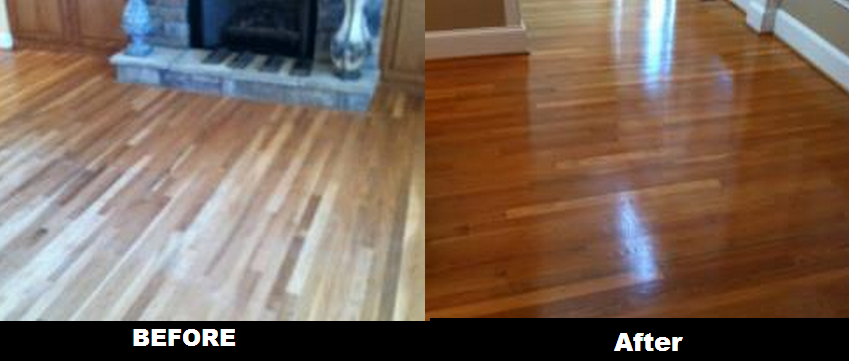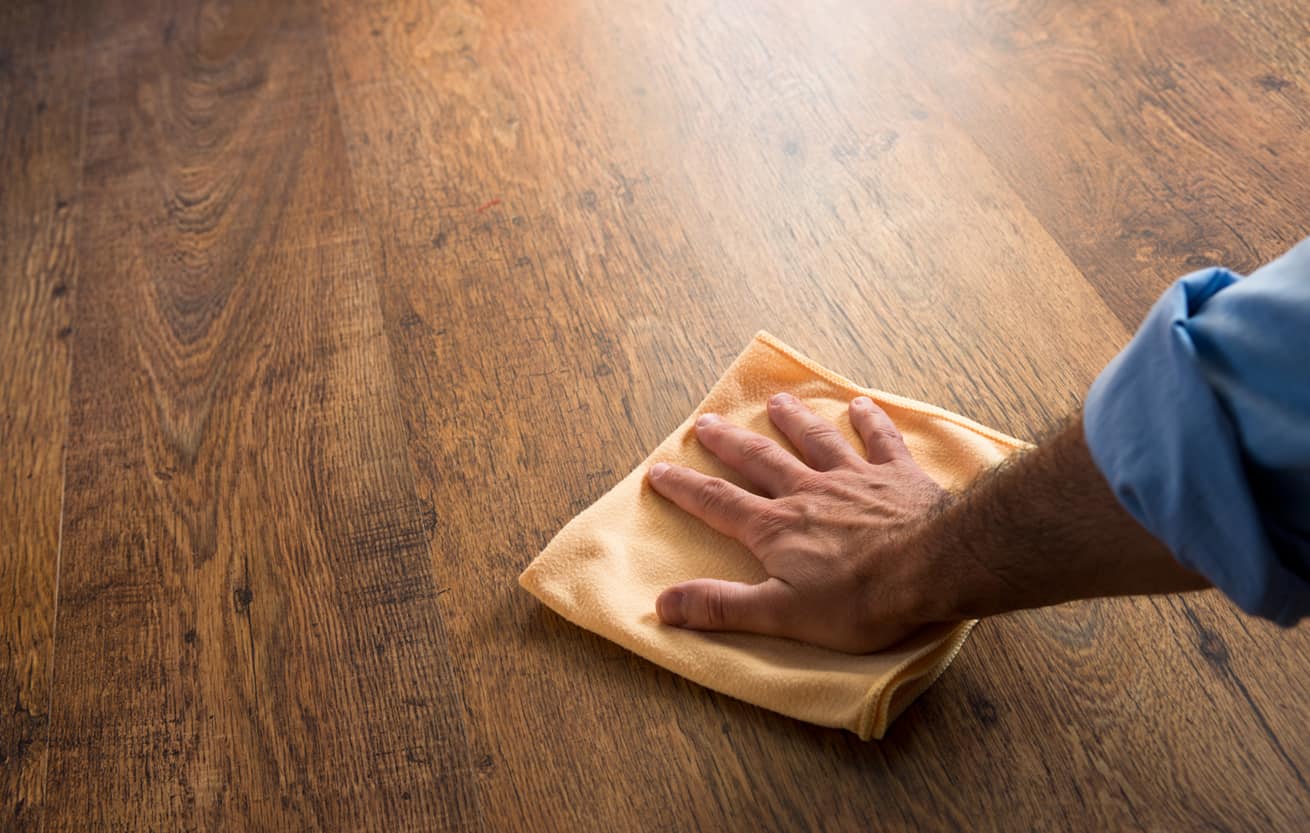Have you ever stared at your gleaming hardwood floors, admiring their beauty, only to be met with a sudden wave of anxiety? You know that grime, dust, and whatever sticky mess your kids tracked in last night are lurking beneath the surface, patiently waiting to regain their dominion. You reach for your trusty cleaning spray, but something stops you. You remember hearing that ammonia, a common household cleaner, can be dangerous around wood. Is it really a no-go for your prized floors?

Image: www.gooxymagic.com
The short answer is: It’s complicated. While ammonia is indeed a powerful cleaning agent, its effectiveness and safety on wood floors depend on a few crucial factors. Understanding these nuances can help you make informed choices about cleaning your wood floors and keep them looking their best. Let’s delve into the world of wood floor cleaning and find out if ammonia fits the bill.
The Power of Ammonia: A Double-Edged Sword
Ammonia, a colorless gas with a pungent odor, has been used as a cleaning agent for centuries. Its effectiveness stems from its ability to break down grease, grime, and sticky messes. It acts as a powerful degreaser and can even cut through some stubborn stains. But, with great power comes great responsibility. Ammonia, while effective, can also be a bit of a bully when it comes to delicate surfaces like wood.
The Danger of Ammonia on Wood Floors: A Closer Look
While ammonia can be effective at removing dirt and grime, it can also strip away the protective finish on your wood floors. This finish is vital to keeping your floors looking their best and protecting them from scratches, stains, and even moisture damage. When the protective coating is weakened or stripped away, your floors become more susceptible to damage. The result? Dull, scratched, and even warped surfaces.
The type of finish on your wood floor is crucial in understanding the risk of using ammonia. For instance, oil-based finishes are generally more susceptible to damage from ammonia than water-based finishes. This is because the ammonia can react with the oil, potentially breaking down the finish, leading to dullness and discoloration.
Alternatives to Ammonia: Gentle Cleaning for Your Floors
Fortunately, there are plenty of safe and effective alternatives to ammonia for cleaning your wood floors. Gentle cleaners formulated for wood floors are readily available and are designed to remove dirt while preserving the protective finish. These cleaners often contain ingredients like soap, vinegar, or other mild detergents that are effective while being safe for your floors.

Image: www.everydaycheapskate.com
Vinegar: A Natural Cleaning Solution
Vinegar, a common kitchen staple, is a natural cleaner that’s often praised for its effectiveness on wood floors. Its acidity helps to break down dirt and grime, and its ability to cut through grease can be quite impressive. You can make a simple vinegar cleaning solution by mixing equal parts water and vinegar. Apply the solution to your floors, let it sit for a few minutes, and then mop or scrub the surface with a soft cloth. Be sure to rinse the floor thoroughly with clean water after mopping.
Essential Tips for Cleaning Your Wood Floors
Regardless of the cleaning agent you choose, here are some essential tips to keep your wood floors looking their best:
- Always test a small, inconspicuous area first to ensure the cleaning solution doesn’t cause any damage or discoloration.
- Use a soft, microfiber mop or cloth to avoid scratching the surface of your floors.
- Dampen your mop or cloth, but don’t soak it. Excessive water can seep into the wood and cause warping or damage.
- Always rinse your floor thoroughly with clean water after cleaning to remove any residue.
- Avoid using abrasive cleaners or scrubbing tools that can scratch the surface of your floors.
The Importance of Regular Floor Maintenance
Cleaning is just one part of a comprehensive wood floor maintenance routine. Regular dusting, sweeping, and vacuuming can help prevent dirt and grime from building up and making cleaning more challenging. Additionally, it’s crucial to have your floors professionally refinished every few years. Refinishing involves sanding down the surface of your floors and applying a fresh coat of finish, restoring their beauty and protecting them from further damage.
The frequency of professional refinishing depends on factors like foot traffic, the type of finish, and the condition of your floors. However, a general guideline is to refinish your floors every 5-10 years. You can always consult with a professional flooring specialist to determine the most appropriate refinishing schedule for your floors.
Can You Clean Wood Floors With Ammonia
The Bottom Line:
While ammonia can be a powerful cleaning agent, it can also be harmful to your wood floors. The risk of damage depends on the type of finish, the concentration of the ammonia, and the cleaning method used. It’s best to avoid using ammonia on your wood floors and opt for safer alternatives, such as mild cleaning solutions or even just plain water. By following these tips and prioritizing proper maintenance, you can keep your wood floors looking beautiful and enduring for years to come. Remember, your wood floors deserve the best care possible, so choose cleaning agents and methods that keep their natural beauty shining.





